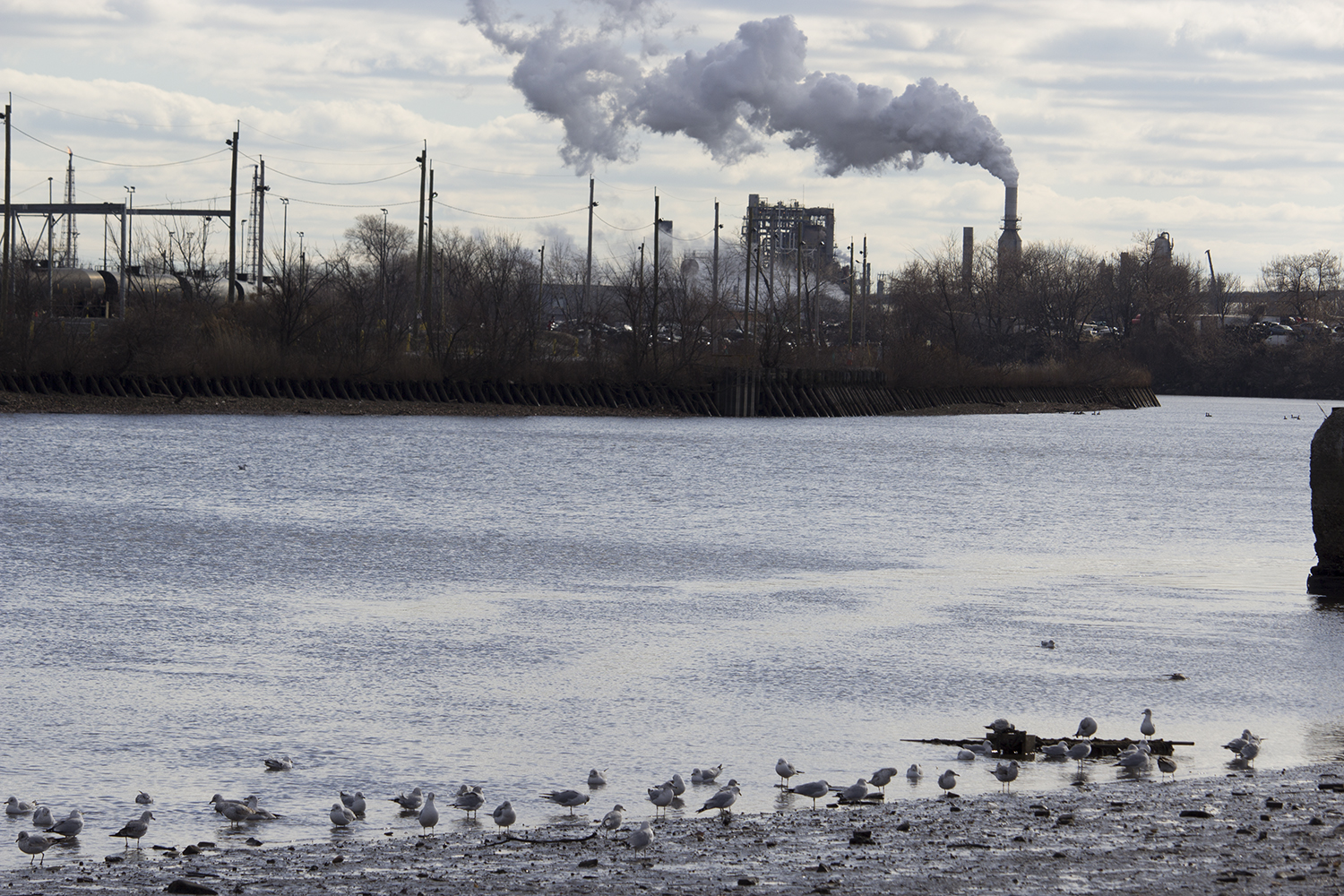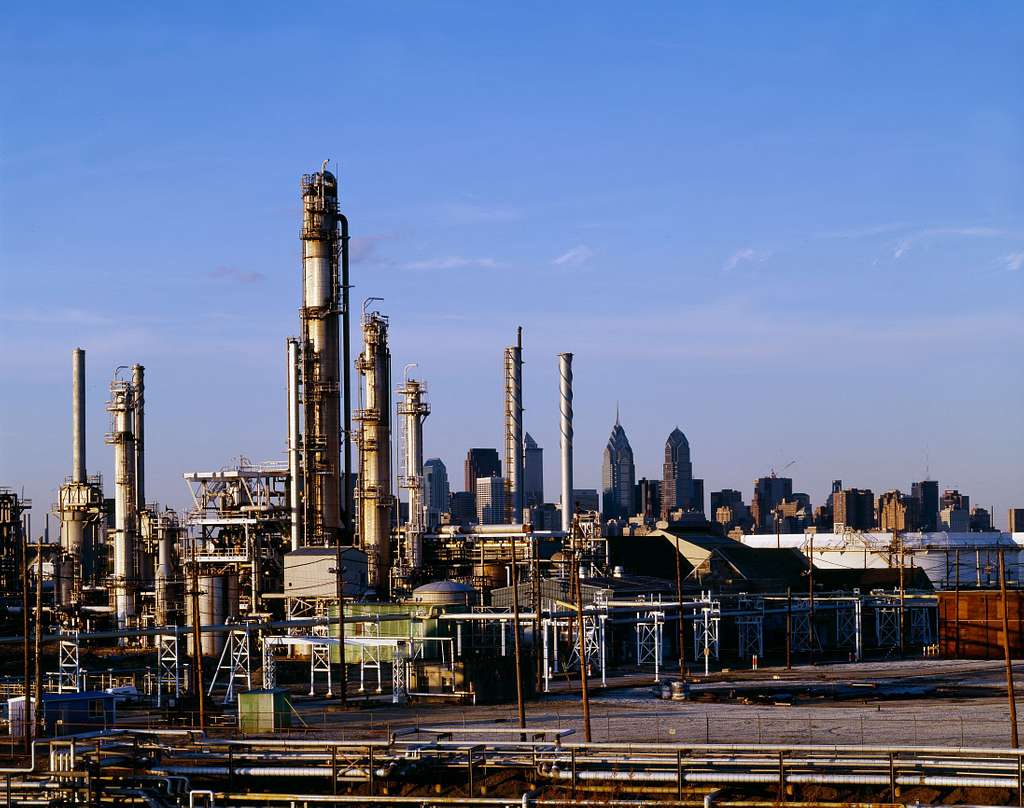Working For Climate Resiliency in Southeast PA: Part I

Climate change is already having a serious impact on residents and ecosystems in the greater Philadelphia region. Widespread flooding from major storms such as Isaiah and Ida, and the threat of urban heat islands throughout the summer months are already impacting our communities. This area is particularly vulnerable to the effects of climate change, and the Pennsylvania Department of Environmental Protection’s (DEP) 2021 Climate Impacts Assessment concluded that Southeast Pennsylvania will experience the most extreme increases in precipitation and sea level rise in the state.
One of the oldest, largest, and most polluted industrial corridors in the United States is in the greater Philadelphia area from the former Philadelphia refinery in Southwest Philadelphia, down the I-95 corridor to Marcus Hook, including large industrial facilities in Trainer and Chester, PA. Climate change is already having an impact on those communities near industrial sites. For instance, the area around the former Sunoco/PES refinery in particular faces major flooding events and sea level rise caused by climate change, and the impact is exacerbated by lax stormwater management, particularly at industrial facilities.
To continue and expand the Council’s efforts to protect residents impacted by the cleanup and proposed redevelopment of the former Philadelphia refinery, the Council and local partners are launching a two-year Climate Resilient Communities Project (CRCP) to improve Southeast Pennsylvania’s climate resiliency. The Council is initiating the CRCP to better understand and address climate change threats to communities near polluting industrial sites along the Delaware River in S/W Philadelphia and Delaware County. Our region needs new and innovative plans, policies, and projects that support thriving communities that are well-positioned to deal with increased flooding, extreme heat, and severe storms.
The CRCP will start by modeling potential climate impacts to our region and invite impacted residents to use the findings to identify community-based green infrastructure projects, and advocate for policy changes to protect communities from flooding, heat impacts, and hazardous pollution from industrial sites throughout the impacted area.
This project offers residents a unique opportunity to create and implement site-specific community projects that protect communities vulnerable to flooding and pollution impacts. Such “green infrastructure” projects will provide better stormwater management and could include tree plantings, community gardens, upgrades to existing trails and parks, or rain gardens. The projects implemented in the focus communities will be guided by the visioning of residents who live there and the unique climate impacts that those communities face.

The Council is committed to amplifying the voices and concerns of impacted residents, advocating for environmental justice and climate justice through policy changes, and supporting local efforts to improve public health and quality of life. In order to effectively create and advocate for policies and plans that will improve health and living conditions in Delaware County and Philadelphia, the Council needs to hear from local residents and groups about how their communities are impacted by climate change and about their hopes for the future of their community. Potential community engagement opportunities for the CRCP will likely include community surveys, community discussions and/or focus groups, community workshops, and an advisory panel that will provide input on the project throughout the process. The Council looks forward to speaking with community members about their concerns and desires for the future.
The CRCP builds upon the Council’s previous work around the former Philadelphia refinery clean up and redevelopment. One of the Council’s most significant recent victories related to this work came last summer when EPA, DEP, and the Army Corp of Engineers all individually rejected a required “Fate and Transport Model” report from Sunoco’s land remediation subsidiary, Evergreen Resources Group, regarding how soil and groundwater contamination will move at the former refinery over the next 30 years. The agencies agreed with a number of concerns the Council had raised in its extensive technical comments, including how Evergreen’s model ignored how increased sea level rise, precipitation, new development, and raising portions of the site could affect flooding and storm water. Clean Air Council staff also supported affected residents in submitting 85 official comments raising these concerns about Evergreen’s proposed model.
The Council is closely monitoring and will continue to engage the public on land cleanups, redevelopment projects, or new or expanded industrial projects in the Philadelphia region to ensure residents are aware of and can participate in decisions on projects that may affect pollution from legacy industrial sites in already flood-prone areas.
For more information on Clean Air Council’s climate resiliency work in Southeast PA, contact Russell Zerbo at rzerbo@cleanair.org

